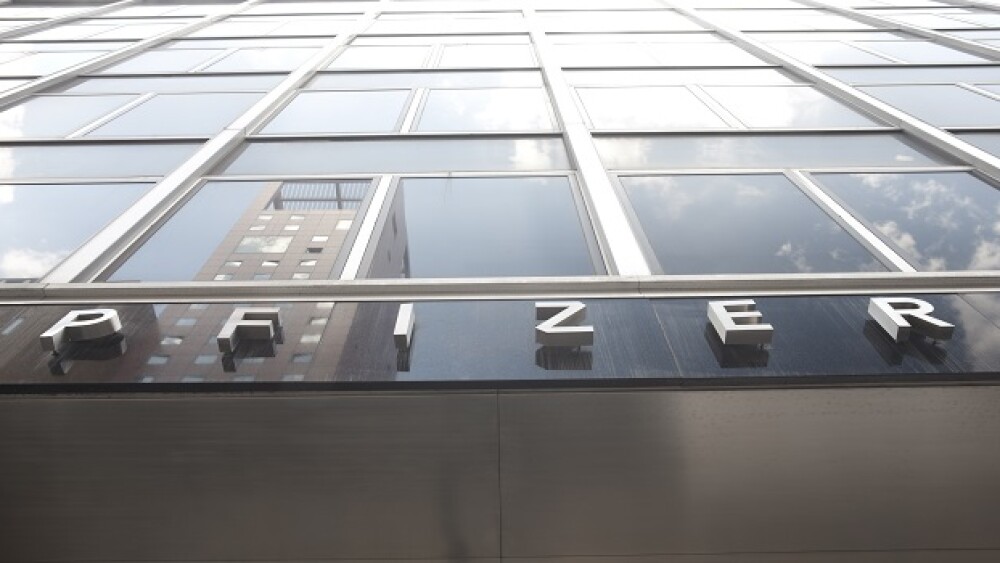ORLANDO, Fla. and NUTLEY, N.J., April 12 /PRNewswire-FirstCall/ -- Data analyses from the largest initial registration clinical trial program ever undertaken in the renal anemia arena provide efficacy and safety information on the investigational anemia therapy MIRCERA(TM) for the treatment of renal anemia associated with chronic kidney disease (CKD) in patients on dialysis and not on dialysis. Three data analyses were presented at the National Kidney Foundation 2007 Spring Clinical Meetings in Orlando, Florida.
According to these analyses, MIRCERA with extended dosing up to once every four weeks: (1) corrected and maintained hemoglobin (Hb) levels in patients with CKD, on dialysis and not on dialysis; (2) maintained Hb levels in dialysis patients, regardless of congestive heart failure (CHF) status as shown in a post-hoc analysis; and (3) exhibited a safety profile that is consistent with that of commercially available erythropoiesis stimulating agents (ESAs) and typical of those associated with this patient population.
"The goal in treating renal anemia is to safely maintain target hemoglobin levels," said Steven Fishbane, MD, Associate Director of Nephrology, Associate Chairman of the Department of Medicine, and Director of End-Stage Renal Disease research at Winthrop University Hospital. "These data analyses clearly demonstrate that MIRCERA corrected low hemoglobin levels, and maintained target hemoglobin levels with the added convenience of up to once- monthly dosing."
About the Studies
Safety and Tolerability of C.E.R.A. In Patients With Chronic Kidney Disease: Pooled Data From Ten Phase II-III Trials
Pooled data from four Phase II and six Phase III studies evaluated the safety and tolerability of MIRCERA (intravenous (IV) and subcutaneous (SC)) in patients not previously treated with commercially available ESAs and those previously treated with commercially available ESAs. This data analysis showed that the incidence of adverse events in the Phase II and III safety population was similar between MIRCERA and reference groups, and typical of those associated with this patient population; and the administration of MIRCERA for the treatment of anemia associated with CKD has a safety profile consistent with that of reference ESAs.
C.E.R.A. Once Monthly Maintains Stable Hemoglobin Levels In Patients With Chronic Kidney Disease on Dialysis With and Without Congestive Heart Failure (CHF)
This retrospective analysis of two Phase III studies evaluated the efficacy and tolerability of MIRCERA (IV and SC) administered once every two weeks or once every four weeks in patients with or without congestive heart failure who were on dialysis and were directly converted from epoetin alfa or
beta. The post-hoc analysis showed that MIRCERA, administered at extended dosing intervals, was effective in maintaining stable Hb levels in dialysis patients with and without CHF who were directly switched from shorter-acting ESAs.
Efficacy of C.E.R.A. in Treatment of Renal Anemia: Overview of 6 Global Phase III Trials
This was an overview of six global studies in approximately 2,400 patients that compared MIRCERA with epoetin alfa or beta and with darbepoetin alfa. This overview showed that the efficacy of MIRCERA was comparable to that of the comparator agents, but required less frequent administration.
Chronic Kidney Disease and Renal Anemia
According to the National Kidney Foundation, 20 million Americans have chronic kidney disease and another 20 million are at increased risk for the condition. CKD is considered a rising global epidemic because it is linked to two of the fastest-growing diseases - diabetes and hypertension. An often under-diagnosed condition, CKD is called a disease multiplier because many of its risk factors are also complications of the disease itself, creating a relentless spiral in which one condition can lead to the exacerbation of the other and, ultimately, to death. In particular, renal anemia, diabetes and cardiovascular disease frequently play this double role.
About MIRCERA
The initial registration clinical program for MIRCERA consisted of 10 global studies involving more than 2,700 patients from 29 countries. The Phase III program for MIRCERA consisted of two correction and four maintenance studies exploring intravenous and subcutaneous MIRCERA at extended administration intervals.
Roche filed applications with the regulatory authorities in the United States and in the European Union in April 2006 seeking approval for the use in the treatment of anemia associated with CKD in patients on dialysis and not on dialysis.
Safety Information
MIRCERA has a demonstrated safety profile comparable to other erythropoietic agents.
The most commonly reported adverse events in the MIRCERA Phase II/III clinical program were hypertension, nasopharyngitis and diarrhea. Erythropoietic therapies increase the risk of death and serious cardiovascular events when administered to a hemoglobin of greater than 12 g/dL.
Erythropoiesis stimulating agents, when administered to target a hemoglobin of greater than 12 g/dL have shortened the time to tumor progression, shortened survival and increased the risk of death in cancer patients.
Pure Red Cell Aplasia (PRCA) has been observed in patients treated with erythropoietin therapy. However, PRCA has not been observed with MIRCERA in clinical trials to date.
About Roche
Hoffmann-La Roche Inc. (Roche), based in Nutley, N.J., is the U.S. pharmaceuticals headquarters of the Roche Group, one of the world's leading research-oriented healthcare groups with core businesses in pharmaceuticals and diagnostics. For more than 100 years, the Roche Group has been committed to developing innovative products and services that address prevention, diagnosis and treatment of diseases, thus enhancing people's health and quality of life. An employer of choice, in 2006, Roche was named one of the Top 20 Employers (Science magazine), ranked the No. 1 Company to Sell For (Selling Power), and one of AARP's Top -Companies for Older Workers, and in 2005, Roche was named one of Fortune magazine's Best Companies to Work For in
America. For additional information about the U.S. pharmaceuticals business, visit our websites: http://www.rocheusa.com or www.roche.us.
All trademarks used or mentioned in this release are protected by law.
RocheCONTACT: Linda Dyson, of Roche, +1-973-562-2231, linda.dyson@roche.com;David Freundel, of Manning Selvage & Lee for Roche, +1-212-468-3982,Mobile: +1-917-806-6625, david.freundel@mslpr.com




